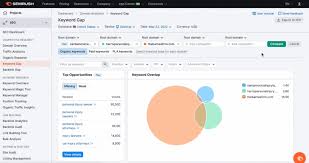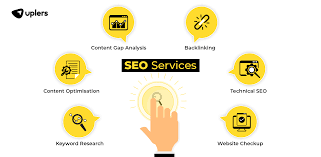SEM Marketing: Unlocking the Power of Search Engines for Business Success
In the digital age, search engines have become an integral part of our daily lives. Whether we’re looking for information, products, or services, search engines are often our first stop. As a business owner or marketer, leveraging the power of search engines is crucial to reaching your target audience and driving success. This is where SEM marketing comes into play.
SEM, or Search Engine Marketing, is a powerful strategy that aims to increase a website’s visibility in search engine results pages (SERPs) through paid advertising. It involves utilizing platforms such as Google Ads or Bing Ads to display ads to users who are actively searching for specific keywords related to your business.
One of the key benefits of SEM marketing is its ability to provide immediate results. Unlike other digital marketing strategies that may take time to yield significant outcomes, SEM allows you to quickly gain exposure and drive traffic to your website. By bidding on relevant keywords and creating compelling ad copy, you can position your business right in front of potential customers at the exact moment they are searching for what you offer.
Another advantage of SEM marketing is its high level of targeting precision. With SEM, you have control over which keywords trigger your ads and who sees them. This means you can tailor your campaigns to reach specific geographic locations, demographics, or even individuals who have previously visited your website (remarketing). Such targeting capabilities help you maximize your ad spend by focusing on the most relevant audience segments.
Furthermore, SEM provides valuable insights through analytics and tracking tools. By monitoring metrics like click-through rates (CTR), conversion rates, and cost per acquisition (CPA), you can measure the effectiveness of your campaigns and make data-driven decisions to optimize performance continuously. This level of transparency allows you to refine your strategies over time and achieve better results.
However, it’s important to note that successful SEM marketing requires careful planning and execution. Conducting thorough keyword research, understanding your target audience, and crafting compelling ad copy are essential steps to ensure your ads resonate with potential customers. Additionally, continuously monitoring and optimizing your campaigns based on performance data is crucial to stay ahead of the competition.
In conclusion, SEM marketing is a powerful tool that can significantly impact the success of your business. By harnessing the reach and targeting capabilities of search engines, you can effectively connect with potential customers at the right moment. With immediate results, precise targeting options, and valuable insights, SEM marketing offers an excellent opportunity to drive traffic, increase conversions, and ultimately grow your business in the digital landscape. So why wait? Unlock the power of SEM marketing today and take your business to new heights!
Understanding SEM: Frequently Asked Questions about Search Engine Marketing
- What is SEO vs SEM?
- What is SEM marketing and how it works?
- What type of marketing is SEM?
- What is SEM mean in marketing?
What is SEO vs SEM?
SEO (Search Engine Optimization) and SEM (Search Engine Marketing) are two distinct but closely related strategies used to increase a website’s visibility in search engine results pages (SERPs). While they both aim to drive traffic to a website, they differ in their approaches and techniques.
SEO focuses on optimizing a website’s content, structure, and technical aspects to improve its organic (unpaid) search engine rankings. It involves various on-page and off-page optimization techniques, such as keyword research, optimizing meta tags and headings, improving site speed and mobile-friendliness, building high-quality backlinks, and creating valuable content that aligns with user intent. The goal of SEO is to improve a website’s visibility in search results over time by ranking higher for relevant keywords.
On the other hand, SEM refers to paid advertising efforts on search engines. It involves running paid campaigns through platforms like Google Ads or Bing Ads to display ads in search engine results when users search for specific keywords. SEM allows businesses to bid on keywords related to their products or services and display targeted ads at the top or bottom of SERPs. These ads are labeled as “Ad” or “Sponsored” and can help businesses gain immediate visibility and attract relevant traffic.
While SEO focuses on organic rankings and long-term visibility, SEM provides immediate visibility through paid advertisements. SEO requires ongoing efforts to optimize a website’s content and improve its authority over time, while SEM requires continuous monitoring and management of paid campaigns.
It’s important to note that SEO and SEM are not mutually exclusive but can complement each other when used together strategically. Many businesses utilize both strategies simultaneously to maximize their online presence. By combining SEO techniques with targeted SEM campaigns, businesses can increase their chances of appearing prominently in search engine results for relevant queries.
In summary, SEO is the process of optimizing a website organically to improve its rankings in SERPs over time, while SEM involves running paid advertising campaigns on search engines for immediate visibility. Both strategies have their advantages and can work together to drive traffic, increase brand visibility, and achieve online success.
What is SEM marketing and how it works?
SEM, or Search Engine Marketing, is a digital marketing strategy that aims to increase a website’s visibility in search engine results pages (SERPs) through paid advertising. It involves using platforms like Google Ads, Bing Ads, or other search engine advertising networks to display ads to users who are actively searching for specific keywords related to your business.
Here’s how SEM marketing works:
- Keyword Research: The first step in SEM marketing is conducting thorough keyword research. This involves identifying the keywords and phrases that potential customers are likely to use when searching for products or services similar to what your business offers.
- Ad Campaign Creation: Once you have identified the relevant keywords, you create targeted ad campaigns. This involves creating compelling ad copy that grabs the attention of users and entices them to click on your ad.
- Bidding on Keywords: With SEM marketing, you bid on the keywords you want your ads to appear for in search engine results. The bidding process determines how much you are willing to pay each time someone clicks on your ad (Cost-Per-Click or CPC).
- Ad Placement: When a user searches for a keyword you have bid on, the search engine’s algorithm determines which ads will be displayed based on various factors such as bid amount, ad quality, and relevance. The highest bidder doesn’t always secure the top spot; factors like ad quality and relevance also play a role.
- Ad Display and Clicks: If your ad is selected for display, it appears alongside organic search results or in designated areas of the search engine results page (SERP). Users who find your ad relevant and compelling may click on it, leading them directly to your website or landing page.
- Tracking and Analytics: Throughout the campaign, you can track key metrics such as impressions (how many times your ad was displayed), click-through rates (the percentage of users who clicked on your ad), conversions (desired actions taken on your website), and other performance indicators. This data helps you evaluate the effectiveness of your campaigns and make informed decisions for optimization.
- Ongoing Optimization: SEM marketing is an ongoing process that requires continuous monitoring and optimization. By analyzing performance data, you can refine your campaigns, adjust bidding strategies, update ad copy, or experiment with different keywords to improve results over time.
Overall, SEM marketing allows businesses to reach a highly targeted audience actively searching for products or services they offer. By leveraging paid advertising on search engines, businesses can increase their visibility, drive relevant traffic to their websites, and ultimately achieve their marketing goals.
What type of marketing is SEM?
SEM stands for Search Engine Marketing. It is a form of digital marketing that involves promoting a website or business through paid advertising on search engine results pages (SERPs). SEM encompasses various strategies, including pay-per-click (PPC) advertising, where businesses bid on specific keywords to display their ads to users searching for related terms. The goal of SEM is to increase visibility, drive targeted traffic, and generate conversions by leveraging the power of search engines.
What is SEM mean in marketing?
SEM stands for Search Engine Marketing. In marketing, SEM refers to the practice of promoting a website or business through paid advertising on search engine results pages (SERPs). It involves utilizing platforms such as Google Ads, Bing Ads, or other search engine advertising networks to display ads to users who are actively searching for specific keywords related to the business.
SEM encompasses various strategies and techniques aimed at increasing a website’s visibility in search engine results. This is achieved by bidding on relevant keywords and creating compelling ad copy that appears alongside organic search results. When users click on these ads, businesses pay a predetermined amount based on the bidding system or a cost-per-click (CPC) model.
The goal of SEM marketing is to drive targeted traffic to a website and increase conversions. By strategically choosing keywords and optimizing ad campaigns, businesses can reach their desired audience at the precise moment they are searching for products, services, or information related to their offerings. SEM offers immediate visibility and can deliver quick results compared to other digital marketing strategies.
SEM also provides valuable insights through analytics and tracking tools. Marketers can monitor metrics such as click-through rates (CTR), conversion rates, and cost per acquisition (CPA) to measure the effectiveness of their campaigns. This data helps them make informed decisions and continuously optimize their strategies for better performance.
Overall, SEM marketing plays a crucial role in online advertising by allowing businesses to connect with potential customers directly through search engines. It offers precise targeting options, immediate visibility, and measurable results, making it an essential component of many successful digital marketing campaigns.




